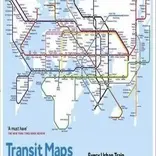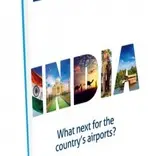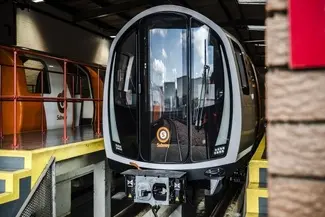|
Code:
73071
|
DP World issues Africa infrastructure finance warning

TIN news: DP World has issued a warning that more sophisticated financing methods will be required if Africa is to benefit from the infrastructure transformation that would put its economies on sounder footing.
In a report the port operator commissioned from the Economist Intelligence Unit, entitled “Africa at the Crossroads—Bridging the infrastructure gap”, it said that increased recourse to public-private partnerships (PPPs) and sovereign and project bond issuance were required to develop and maintain infrastructure assets.
African governments raised $8bn of global sovereign bonds in 2014, up from $1bn a decade ago.
“To overcome infrastructure deficits on the continent, as much as $93bn will be required annually (approximately 10% of GDP), with only half of that amount currently available,” it said.
Activity is not keeping pace with average annual GDP growth of 5%. “Increasing levels of economic activity are taking place on a deficient network of roads, railways and power systems, not to mention the burden that the growing population places on public infrastructure such as sanitation systems.”
The last six years have seen a drop in performance. “Only 11.3% of trade in Africa is intra-regional, and exports remain skewed towards providing raw minerals to global markets.”
If Africa’s regions were better connected, market sizes would increase and encourage greater foreign investment which is still held back by market fragmentation.
The report said there was a direct link between road quality and mortality, with the 14 worst global performers all coming from Africa. The report identifies a $3.2bn investment shortfall: “Sub-Saharan Africa spends around $6.8bn per year on paving roads, but this figure needs to be closer to $10bn.”
The report accused Africa of having the least efficient ports in world. “Processing times for cargo are long, and none of the continent’s ports plays a significant role in international sea shipping, with the exception of Durban in South Africa,” it said.
The report said ‘hard infrastructure,’ such as roads, railways and ports, as well as ‘soft infrastructure,’ like governance, regulatory frameworks and trade agreements and facilitation, needed to improve.
It said only three African countries had ratified the Agreement on Trade Facilitation (ATF), proposed by the WTO, to improve technology, dissemination of information about new trade laws, and health and safety requirements.
The deal requires ratification by two-thirds of WTO members, but to date, Mauritius, Botswana and Niger are the only African countries, out of a total of 20 nations worldwide, to approve the charter.
While it praised several examples of progress, often China-led, and the development contribution of multi-lateral institutions like the World Bank and the New Partnership for Africa’s Development (NEPAD), it said the continent was moving at a rate “with which its infrastructure cannot keep up.”
Although three major African trade blocks consisting of 26 countries recently agreed to harmonise, DP World is calling for a pan-African free trade agreement.
DP World operates two ports in sub-Saharan Africa, at Djibouti and Mozambique, and is developing one more in Senegal.
In a report the port operator commissioned from the Economist Intelligence Unit, entitled “Africa at the Crossroads—Bridging the infrastructure gap”, it said that increased recourse to public-private partnerships (PPPs) and sovereign and project bond issuance were required to develop and maintain infrastructure assets.
African governments raised $8bn of global sovereign bonds in 2014, up from $1bn a decade ago.
“To overcome infrastructure deficits on the continent, as much as $93bn will be required annually (approximately 10% of GDP), with only half of that amount currently available,” it said.
Activity is not keeping pace with average annual GDP growth of 5%. “Increasing levels of economic activity are taking place on a deficient network of roads, railways and power systems, not to mention the burden that the growing population places on public infrastructure such as sanitation systems.”
The last six years have seen a drop in performance. “Only 11.3% of trade in Africa is intra-regional, and exports remain skewed towards providing raw minerals to global markets.”
If Africa’s regions were better connected, market sizes would increase and encourage greater foreign investment which is still held back by market fragmentation.
The report said there was a direct link between road quality and mortality, with the 14 worst global performers all coming from Africa. The report identifies a $3.2bn investment shortfall: “Sub-Saharan Africa spends around $6.8bn per year on paving roads, but this figure needs to be closer to $10bn.”
The report accused Africa of having the least efficient ports in world. “Processing times for cargo are long, and none of the continent’s ports plays a significant role in international sea shipping, with the exception of Durban in South Africa,” it said.
The report said ‘hard infrastructure,’ such as roads, railways and ports, as well as ‘soft infrastructure,’ like governance, regulatory frameworks and trade agreements and facilitation, needed to improve.
It said only three African countries had ratified the Agreement on Trade Facilitation (ATF), proposed by the WTO, to improve technology, dissemination of information about new trade laws, and health and safety requirements.
The deal requires ratification by two-thirds of WTO members, but to date, Mauritius, Botswana and Niger are the only African countries, out of a total of 20 nations worldwide, to approve the charter.
While it praised several examples of progress, often China-led, and the development contribution of multi-lateral institutions like the World Bank and the New Partnership for Africa’s Development (NEPAD), it said the continent was moving at a rate “with which its infrastructure cannot keep up.”
Although three major African trade blocks consisting of 26 countries recently agreed to harmonise, DP World is calling for a pan-African free trade agreement.
DP World operates two ports in sub-Saharan Africa, at Djibouti and Mozambique, and is developing one more in Senegal.















![AIRBUS A380 [MORE THAN 600 PASSENGER’S CAPACITY PLANE]](https://cdn.tinn.ir/thumbnail/4jCp4EQvCU0b/IjHVrSYQrIAqIzXuTzADR7qLYX4idQT4nfq__26E5SCUPLMqfhWkWajvuO9Wfq1ql1TjV4dhkrHliNQU82kMpo2NNftT_NGEwHc9KXtN_rk731bmifa2IQ,,/airbus-a380-structure1.jpg)

Send Comment